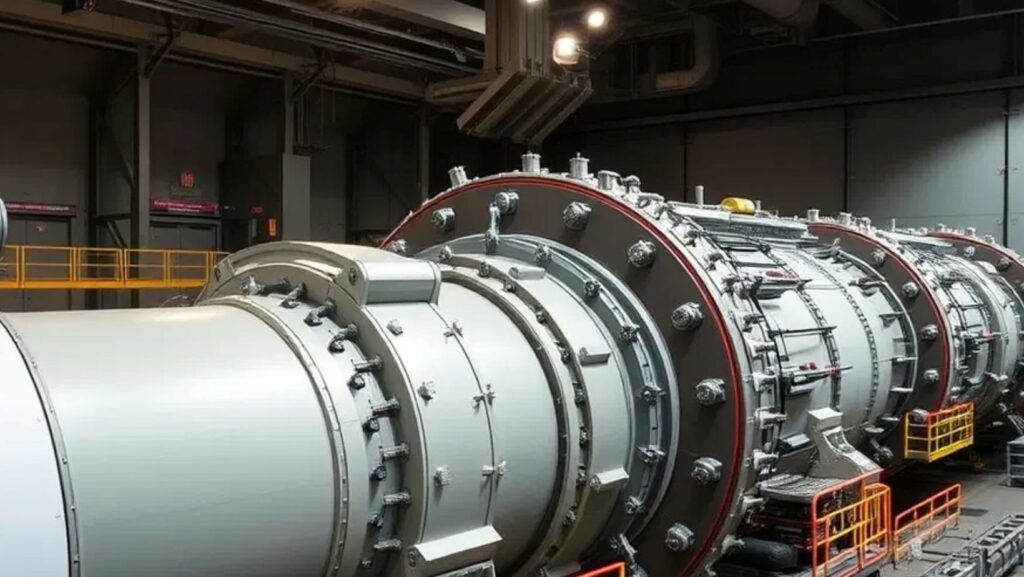When climate control collides with military-grade custom engineering, the result is a system that saves energy and protects critical assets. You’ve heard about HVAC, but this is a different class of technology. This article shows you what custom environmental units can do for sustainability, from data centers to vertical farms.
The discussion around sustainability often focuses on big topics like solar farms or electric vehicles. But what about the less obvious technologies? The ones humming away behind the scenes, making modern life possible? Think about all the places requiring perfect atmospheric conditions to function. Data servers, pharmaceutical labs, and even museums storing priceless art. You can’t just use a standard air conditioner. You need something built to a precise specification, a system that does more than just cool or heat a room.
A New Class of Environmental Control
A standard HVAC system just doesn’t cut it when precise control is key. Custom environmental control units are specially designed for specific enclosed spaces, handling not just temperature but also humidity, air pressure, and air purity with great accuracy. They keep temperatures within half a degree Celsius, set humidity levels just right, and use HEPA filters for clean air. These systems are crucial in data centers to stop servers from overheating, in pharmaceutical manufacturing to keep products stable, and in vertical farms to create the best conditions for growing crops.
Alaska Defense applied its experience in building reliable military shelters to offer a custom environmental control unit for businesses. These high-quality ECUs are built with custom BTU ranges from 12,000 to 120,000, catering to specific operational needs. Mainly focused on government and military applications, the company handles everything in-house from pinpointing exact requirements to testing and precision manufacturing. This approach allows them to control the entire process from the initial design all the way to delivery.
How Engineering Creates Efficiency
The true link between these units and sustainability is their fundamental design. A custom unit is built for a specific purpose and load, meaning it doesn’t waste energy running at high capacity when it doesn’t have to. Imagine a car engine that runs at full throttle all the time, even when you’re sitting at a stoplight. A custom ECU avoids this problem completely.
A key component for energy efficiency in these units is variable speed technology. They use variable frequency drives (VFDs) on fans, pumps, and compressors. This allows the system to modulate its speed and output to match real-time demand instead of running at a constant, maximum speed. It’s a proven method to cut energy consumption, especially in data centers where server heat is often vented outside. A custom ECU can capture this heat to warm nearby buildings or water supplies, significantly reducing the facility’s energy footprint.
Principles of Sustainable Design
A sustainable custom ECU is designed very carefully. This requires viewing the system as part of a larger process or building. You need to think about how it can work with and use other systems more efficiently, like a thermal mass in a building or renewable energy sources.
These ECUs often use sophisticated control algorithms, including machine learning. This lets the unit predict changes in environmental conditions and adjust the system before problems start. Predictive capabilities allow the unit to learn the environment and optimize performance, which cuts down on energy waste.
Another significant step toward sustainability is the use of low-GWP refrigerants. The industry is moving toward refrigerants that have a lower global warming potential. A custom ECU can be engineered to use these more sustainable refrigerants, such as propane or CO2, which have a much smaller environmental impact than traditional HFCs.
The Financial Side of a Green Choice
A custom ECU usually requires a higher initial investment than a standard, mass-produced unit. It happens in specialized engineering and manufacturing. But the long-term financial benefits almost always justifiably cover this cost. Custom units also use tougher and higher quality parts for fewer breakdowns and a longer lifespan.
Using a precise climate control system reduces maintenance and repair costs, improves product quality, and increases output, boosting profitability in vertical farms and manufacturing plants. This can lead to a return on investment within a few years.
A Powerful Business Advantage
Using technologies like custom ECUs improves a company’s corporate social responsibility profile. That’s something more important than ever to investors, consumers, and business partners. As environmental regulations get stricter, using efficient and environmentally friendly technology becomes a necessity.

Custom ECUs can be designed to meet or exceed these new requirements, essentially future-proofing a facility. Also, a commitment to sustainability can improve a company’s public image and attract environmentally conscious talent. When you show you care about your operations’ impact, you create a better brand.
What Comes Next for This Technology
The trend is definitely leaning towards smarter, more automated systems. As sectors like data centers and vertical farms expand quickly, there’s a growing need for modular ECUs that can scale easily. This not only cuts down on waste but also provides flexibility. Plus, looking ahead, future ECUs will be all about reducing their carbon footprint. They’ll be designed with a focus on the environmental impact of their materials and refrigerants over their whole lifecycle.
